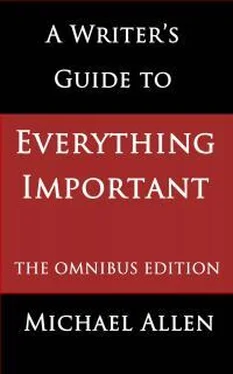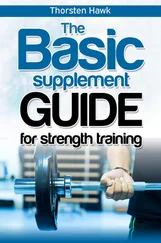Back to Amazon again, and we find that MTB has 34 books on its list, including the ones previously published by Headline. And Headline, for its part, no longer lists Janet’s name on its list of authors.
So – one traditionally published author, with a successful if minor career, has gone indie.
This trend seems to be catching on. Or at any rate, writers are now well aware of the possibilities, if not actually choosing to go that route.
The 2014 Digital Book World and Writer’s Digest Author Survey provides the best data we have so far. More than 9,000 writers were asked to describe their experiences and intentions.
Of the aspiring writers who had completed a manuscript and submitted it to either agents or editors, only one third were determined to pursue the traditional route and no other. Roughly two thirds of the authors were open to digital possibilities.
Self-published authors represented nearly two thirds of those in the survey who had achieved publication by one means or another. So, using the new technology, these particular writers had found a way to reach readers with stories which might otherwise never have been published. Thank you publishers (perhaps), but goodbye.
To be fair, we have to note that there was traffic in both directions. Some traditionally published writers had gone indie, and some indies had signed traditional contracts if offered.
The message is surely clear. Traditional publishers can no longer depend on writers assuming that the traditional route to readers is the only one.
Outcome: Traditional publishers are deeply worried about their profits and are seeking more or less any means, however dubious, to improve the situation. In other industries, even some household names have been swept away by digital change, and publishers, with the rarest of exceptions, are not household names.
4.4 The nature of the publishers’ responses
How did publishers respond to all this? The comments set out here are those of an external observer, of course. Insiders might give you a different perspective, if they were prepared to speak frankly.
4.4.1 Denial
As far as I can see, the publishers’ response began with denial. Can’t possibly happen here. Then it moved to a mood of concern, bordering upon panic, as exhibited by those publishers who were interviewed by Seth Godin in 2010.
4.4.2 Collude with other publishers not to cut each other’s throats
Next came a sense of being overtaken by the inevitable, plus a truly ludicrous attempt to fix the prices of ebooks. If we must have these ghastly ebook editions, they seem to have said to themselves, let’s make sure they really pull in the cash.
Experienced media lawyers such as C.E. Petit could hardly believe that publishers could be so stupid. In their blind rush to grab every penny going, they as good as stuck up a placard saying, Look at us, aren’t we clever? The fix is in, but you’ll never prove it.
Oops. The Department of Justice didn’t have much trouble with that one.
4.4.3. In the case of existing contracts: grab all the rights possible
Next move, grab all the rights you can. Many publishers began to issued addendums to existing contracts (or addenda if you were taught Latin). These addendums, all too often, seize rights which the publisher did not own before, and, even if they did own the rights, take a bigger percentage of the income.
4.4.4 Make new contracts less favourable to writers
Bright idea by several publishers simultaneously – they would have us believe. Do not offer advances on the scale of former times. Avoid holding auctions, which make a publisher bid against other publishers and thus pushes the price up.
Another move: Tighten up all new contracts offered to new writers. In particular, fix the new clauses so that no writer ever gets her rights back; the contract will last for the author’s life plus 70 years. (Or until the politicians are bribed enough to extend the term of copyright even further. It will have to be bribery because there aren’t any good arguments for making copyright last any longer than it does already.)
Dazzle the writers with contract complexity so that the fact that they are signing for the full period of copyright might not be noticed. The newbies are going to be so delighted by being offered a contract by the famous Bootsie & Snudge that they won’t care. And their agent, in the circumstances, might not notice it either. Or might notice it and choose not to mention it. (Agents are desperate for income too, you know.)
The thing is, you see, a publisher never knows when a book might succeed against all expectations, so their present view is that it is best to lock up the book, and the author, for ever. Makes it so much easier to cover all the possibilities.
‘Make no mistake,’ said Jason Epstein of publishing, ‘this is gambling.’ Which is why the prospect of low prices for ebooks is so scary to publishers: if they are the gambler placing scores of bets, and hoping that one occasional big-time winner will more than cover their losses, low prices are bad news. That is why they want to pay authors barely a third of the royalty offered to indies by Amazon. So it becomes more and more essential to have that author tightly bound in an unbreakable contract.
Harry Potter, for example, was absolutely not recognised as a hit when he first appeared. The famous J.K. Rowling’s vast money-earning machine was rejected by every publisher in London bar one, and was bought eventually for a mere £2,500.
And you never know how many years might go by before even a small and obscure book starts to earn serious money.
Example: The Gently novels by Alan Hunter. In 1955, the English writer Alan Hunter published his first crime novel featuring Inspector Gently. He went on to produce 46 of them in all, the last one appearing in 1999.
Alan Hunter, it is fair to say, was never more than a journeyman writer. His books were never big hits on the Inspector Morse scale, and Constable, his final publisher, used to print about 2,000 copies of books like that; they mostly sold to libraries.
In 2007, BBC TV started to serialise the Gently books, but it was all a bit late in the day for Alan because he died in 2005. And now, in 2014, the TV detective has just begun his sixth series, and it is being shown in 16 other countries. Not a huge pot of gold but a nice little earner, long after the author has gone.
Still on contracts: Publishers are now making quite sure to include a non-compete clause. This makes it impossible for a writer to sell anything elsewhere which might compete with the book offered for sale by Bootsie & Snudge. In fact, a carefully drafted non-compete clause can prevent you from ever writing in the same genre during the term of your publishing contract – which, as we have noted above, is likely to be your life plus 70 years.
According to media lawyer David Vandagriff, ‘some publishers attempt to disguise their non-compete clauses by burying them back in the contract boilerplate that inexperienced authors and some agents don’t read.’
At this point, pause for breath.
What else can a poor-but-honest big-time publisher do to pull in some income?
Ah yes. Get the writer to pay. Pay for a lot more than she does already. Persuade the writer to pay her own way on book-signing sessions and sales gimmicks of that sort.
And – now this is a really good one – set up digital-only imprints under the traditional-publisher framework!
4.4.5 In-house digital imprints
If you can’t beat ’em, join ’em!
Somebody somewhere had a Eureka moment, and decided to develop a cunning plan. Instead of losing potential winners to the self-published arena, why not give the reasonably competent writers an opportunity to be published by the famous Bootsie & Snudge, but make them pay for it! And go on paying for it.
Читать дальше












